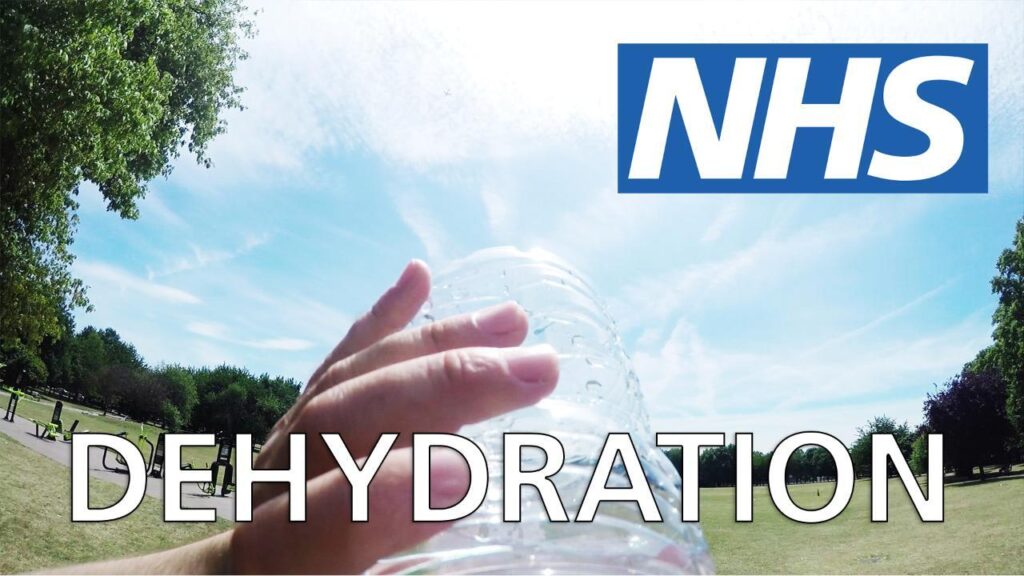Dehydration means your body loses more fluids than you take in. If it’s not treated, it can get worse and become a serious problem.
Important : Babies, children and older adults are more at risk of dehydration.

Check if you’re dehydrated
Symptoms of dehydration in adults and children include:
- feeling thirsty
- dark yellow, strong-smelling pee
- peeing less often than usual
- feeling dizzy or lightheaded
- feeling tired
- a dry mouth, lips and tongue
- sunken eyes
Signs of dehydration in a baby may include:
- a sunken soft spot (fontanelle) on top of their head
- sunken eyes
- few or no tears when they cry
- not having many wet nappies
- being drowsy or irritable
Causes of dehydration
Dehydration can happen more easily if you:
- have diabetes
- have been sick or have diarrhoea
- have been in the sun too long (heatstroke)
- have drunk too much alcohol
- sweat a lot after exercising
- have a high temperature
- take medicines that make you pee more (diuretics)
Things you can do to treat dehydration
- You should drink fluids if you have symptoms of dehydration.
- If you feel sick or have been sick, you may find it hard to drink, so start with small sips and then gradually drink more.
Keeping your child hydrated
Once dehydration has been treated, it’s important that your child’s fluid levels are maintained.
Do
- carry on breastfeeding your baby or using formula – try to give small amounts more often than usual
- give your baby small sips of extra water if they’re on formula or solid foods
- give regular small sips of rehydration solution to replace lost fluids – ask your pharmacist to recommend one
- give small children their usual diet
Don’t
- do not make formula weaker
- do not give young children fruit juice or fizzy drinks – it can make diarrhoea or vomiting worse
How to reduce the risk of dehydration
- Drinking fluids regularly can reduce the risk of dehydration. Water or diluted squash are good choices.
- You should drink enough during the day, so your pee is a pale clear colour.
- Drink more when there’s a higher risk of dehydrating. For example, if you’re being sick, sweating due to hot weather or exercise, or you have diarrhoea.
- Children under the age of 5 should get plenty of fluids to avoid dehydration.
Helping someone you care for
A person you care for may not have a sense of how much they’re drinking.
You can help them by:
- making sure they drink at mealtimes
- making drinking a social thing, like “having a cup of tea”
- offering them food with a high water content – for example, soup, ice cream, jelly and fruits like melon
Source: https://www.nhs.uk/conditions/dehydration/

